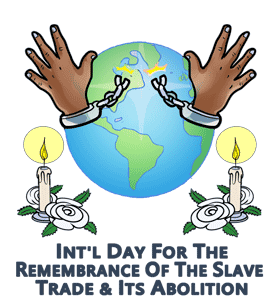International Day for the Remembrance of the Slave Trade and Its Abolition
Quick Facts - US
| HashtagsCompiled on | #RememberSlavery |
|---|---|
| Related Hashtags | #Slavery |
| 2024 Date | August 23, 2024 |
| 2025 Date | August 23, 2025 |
2024 Holidays & Dates - US
| US & Common Holidays | ||
| Misc. & Int'l. Observancesℹ | ||
| Christian Holidays | ||
| Jewish Holidays | ||
| Muslim Holidays |
|
|
›
|
|
